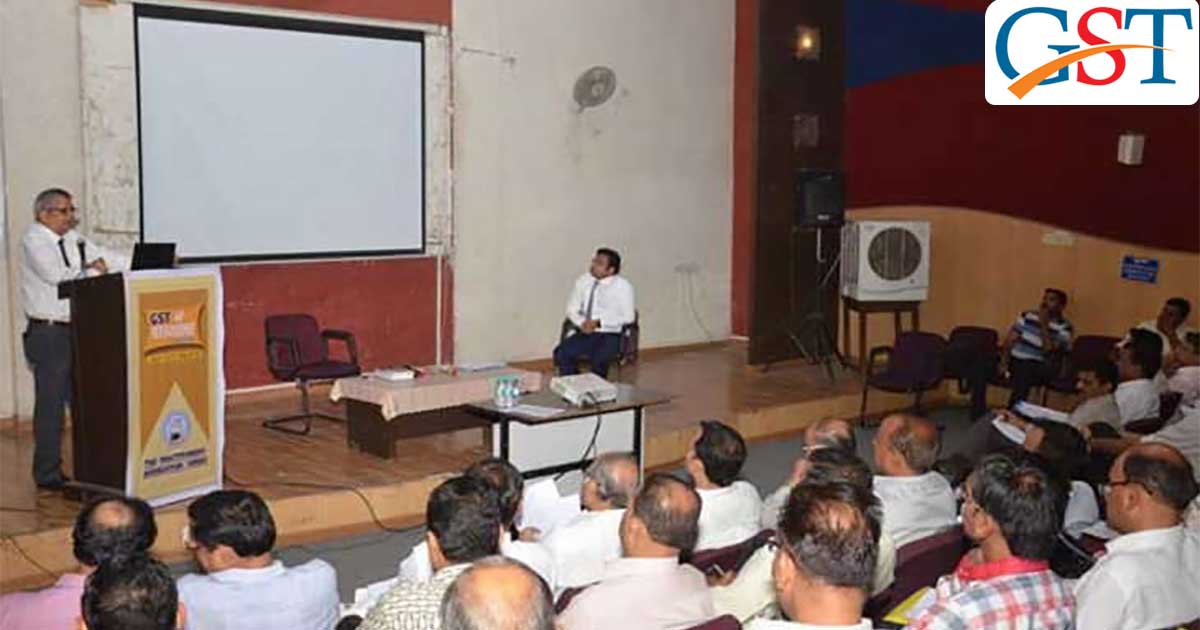
A GST seminar was organized recently by the Tax Practitioners Association. The venue was Indore’s very own and famous Pritamlal Dua Auditorium. The conference was attended by an audience that comprised of common taxpayers as well as business firm owners. Experts on the new GST norms shed light on the various provisions under India’s new indirect tax regime for Input Tax Credit as well Penalties.
Here are a few takeaways from the conference:
Penalties Related to Discrepancies
Experts shared some key points that clear any doubt related to discrepancies that may attract penalties. These include:
- Under GST law, there are no provisions for a penalty against minor mistakes/errors. Any tax violation amounting to less than 5000 do not attract penalties of any kind.
- Businesses who have filed wrong ITC or made wrong refund claims will have to pay the government a fine of either 10000 or 10 percent of the tax amount.
- Further, if during the investigation it is found that the business under the scanner has fraudulently defaulted on tax payments or has willingly claimed more ITC than it was supposed to or has received a wrong refund, then the business will attract a capital punishment in the from Rs 10,000 up to the maximum payable tax amount.
- State tax secretary JP Saraf told that if a person remains absent during summons issued by the Central or State GST officials, he/she may also face a penalty of up to 25000.
Penalties and Rebates related to Transport Companies
Transportation or storage of any goods by any individual or company carried out against the existing GST rules and regulations will attract the penalty to the sum of applicable tax on the value of goods and value of goods.
Provisions for rebates are limited to those individuals/business owners who come forward to pay the amount of tax and penalty. Contrary to this, a person or business owner who chooses to remain tight-lipped will attract penalty equal to the value of the goods.
Work Contract as Supply of Service
As per Tax Experts, Following an amendment in the Constitution of India in 1986, Works Contract has been deemed as Sale of Goods. But under the GST provisions, Works Contract for any permanent property is now considered as Supply of Service.
ITC Provisions
The conference also cleared the air over confusions with ITC Claims in the Manufacturing Sector. Some key highlights include:
- A manufacturer, who strictly adheres to the existing GST norms and accordingly pays GST on the sale of his products, is not liable to claim any ITC against the purchases like steel, sand, ballast, sheet, tiles, paint and other materials made for setting up the various units of his/her factory.
- Under the new GST Norms, complete GST rebate can be availed against machinery brought by a manufacturer/ businessman (industrialist) to set up his factory. In addition to ITC on Invoices of Machines, a tax rebate is also applicable to the cost incurred during the setup process. This includes spendings on cement, steel, TMT Bars and other accessories that form part of the setup process for the machinery foundation.
- If a businessman performs the task of reconstruction, renovation, addition, alteration and repair of a real estate and does not capitalizes the expenditures incurred in such a work, rather includes it as expenditure in his/her profit and loss account at the expense of revenue expenditure. Then in such a situation, the bus businessman is liable to claim input tax credit on the goods purchased and services received for doing the above work.
- In case a businessman sells two goods which are rated differently under GST as part of a single package. And also refrains from reflecting the true value of each product and decides to sell the two product at the same price as a package. Then the GTS levied on the sale of the goods will be calculated considering that good in the package whose selling price is maximum. In this way maximum GST will be levied against the business owner.
All in all the conference was a great success and proved to be a great step forward in spreading GST awareness among common taxpayers and business owners alike. More such conferences across the country are the need of the hour.








